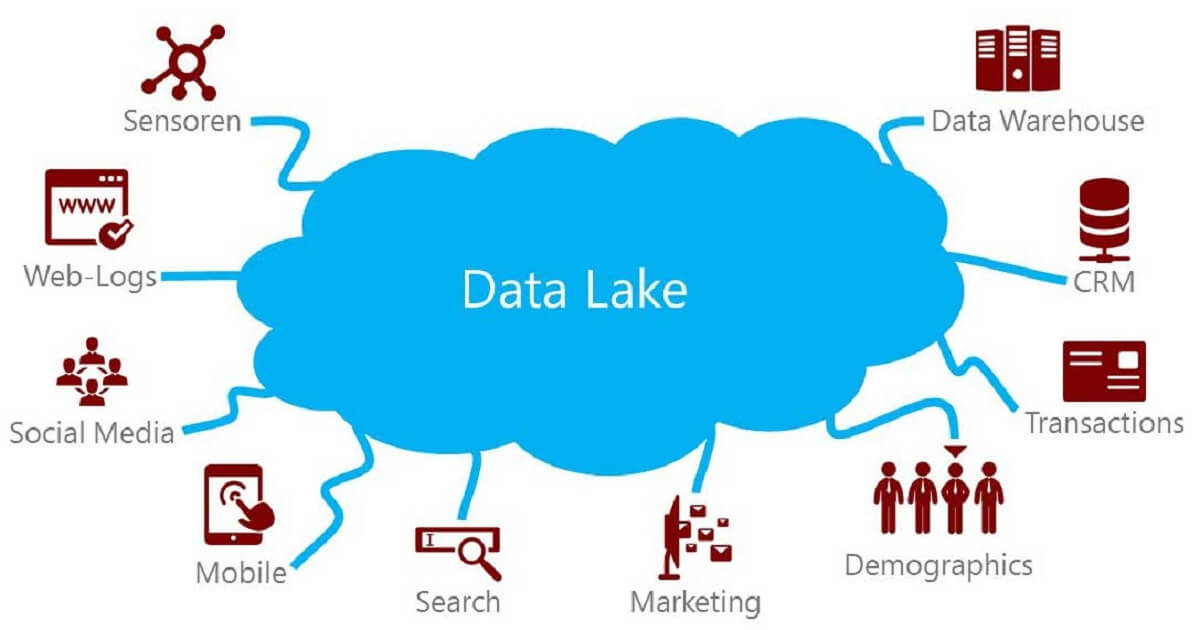A data lake is a vault for organized, unstructured, and semi-organized data. Data lakes are entirely different from data distribution centers since they permit data to be in its rawest structure without waiting to be changed over and broke down first.
In less difficult terms, a wide range of data that are created by the two people and machines can be stacked into a data lake for characterization and examination later on.
Data distribution centers, then again, expect data to be appropriately organized before any work can complete.
To get a more profound comprehension of data lakes and why they’re the ideal possibility for lodging enormous data, it’s critical to plunge into what makes them so not quite the same as data stockrooms.
Data Lake Versus Data Warehouse
The two data lakes and data warehouses are storehouses for data. Presently, we should address a portion of the key contrasts:
Data lakes are intended to help a wide range of data, while data distribution centers utilize profoundly organized data – by and large.
Data lakes store all data that might be broke down later on. This rule doesn’t have any significant bearing to data distribution centers since superfluous data is ordinarily killed because of constrained stockpiling.
The scale between data lakes and data stockrooms is radically unique because of our past focuses. Supporting a wide range of data and putting away that data (regardless of whether it’s not quickly helpful) implies data lakes should be exceptionally adaptable.
Because of metadata (data about data), clients working with a data lake can increase essential understanding of the data rapidly. In data distribution centers, it regularly requires an individual from the improvement group to get to the data – which could make a bottleneck.
In conclusion, the exceptional data the executives required for data distribution centers implies they’re ordinarily progressively costly to keep up contrasted with data lakes.
Benefits Of Big Data Lakes
Data stockpiling in the local arrangement – It takes out the requirement for data displaying at the hour of ingestion. We can do it at the hour of finding and investigating data for examination. It offers unrivaled adaptability to ask any business or space inquiries and to gather bits of knowledge.
Versatility
It offers adaptability and is generally economical contrasted with a customary data distribution center when we consider it.
Adaptability
It can store multi-organized data from assorted sources. In basic words, a data lake can store logs, XML, interactive media, sensor data, parallel, social data, visit, and individuals data.
Diagram Flexibility
Traditionally outline requires the data to be in a particular arrangement. For OLTP (Application Data), this is incredible as it approves data before passage. In any case, for investigation, it’s a deterrent as we need to break down data as may be. Customary data stockroom items are composition-based.
Be that as it may, Hadoop data permit you to be without mapping, or you can characterize different patterns for similar data. To put it plainly, it empowers you to decouple patterns from data, which is magnificent for examination.

All you need to know about Big Data
| Introduction to Big Data | Career Options after Big Data |
| 4 V’s of Big Data | Big Data for Business Growth |
| Uses of Big Data | Benefits of Big Data |
| Demerits of Big Data | Salary after Big Data Courses |
Learn Big Data
| Top 7 Big Data University/ Colleges in India | Top 7 Training Institutes of Big Data |
| Top 7 Online Big Data Programs | Top 7 Certification Courses of Big Data |
Learn Big Data with WAC
| Big Data Webinars | Big Data Workshops |
| Big Data Summer Training | Big Data One-on-One Training |
| Big Data Online Summer Training | Big Data Recorded Training |
Other Skills in Demand
| Artificial Intelligence | Data Science |
| Digital Marketing | Business Analytics |
| Big Data | Internet of Things |
| Python Programming | Robotics & Embedded System |
| Android App Development | Machine Learning |

